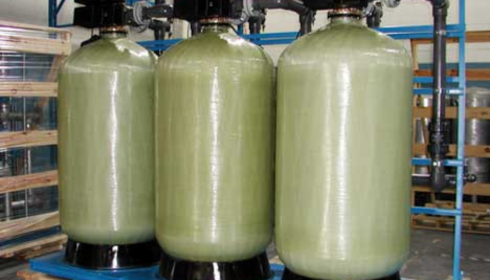Walk into any coffee shop, restaurant, or office in Michigan, and you’ll notice one common thread: water touches everything. From brewing your morning latte to keeping HVAC systems from scaling up, clean water is quietly doing the heavy lifting. Yet, for many businesses, it’s something they don’t think about until there’s a problem—rust stains on sinks, funny tastes in drinks, or even clogged machinery. That’s when the quiet hum of filtration becomes more than background noise; it becomes a priority.
Michigan, with its mix of urban hubs and small towns, has a long, complicated history with water. Industries rely on it, communities depend on it, and when quality slips, everyone feels it. For businesses, overlooking water quality isn’t just a nuisance—it can be costly, both financially and reputationally.
When “Good Enough” Isn’t Good Enough
There’s a temptation to believe that city-supplied water or a small in-house filter is all you need. But any business owner who’s had to deal with scale buildup in their plumbing, or that faint metallic taste in their ice machine, knows better. The truth is, “good enough” water doesn’t cut it when customers, employees, and equipment are all affected.
Restaurants risk the taste of their food. Breweries worry about consistency in their batches. Even car washes have to think about how water quality impacts the finish of a vehicle. A commercial water filtration system Michigan businesses can depend on isn’t just about purifying water—it’s about protecting investments and ensuring a level of quality that matches the service being offered.
South Lyon and the Rise of Smarter Solutions
Take South Lyon, for example. It’s a community where local businesses—from family-owned bakeries to manufacturing plants—rely heavily on consistent water quality. The city’s supply is safe, yes, but safe doesn’t always mean optimal. Hardness levels can vary, and trace contaminants may sneak through.
That’s why more businesses here are exploring industrial water filters South Lyon providers can install and maintain. These aren’t the plastic pitchers you keep in your fridge. We’re talking robust systems designed to handle high volumes, adapt to specific contaminants, and keep everything running smoothly behind the scenes. When you’ve got machinery worth thousands of dollars depending on water quality, filtration stops being an afterthought.
Carbon Filtration: Not Just for Homeowners Anymore
Here’s something interesting: carbon filtration, which many of us associate with those simple faucet attachments or refrigerator filters, has been quietly gaining traction in the commercial world. Why? Because it works—plain and simple.
Activated carbon is like a sponge for impurities, trapping chlorine, organic matter, and those faint odors that can make a glass of water taste a little off. For cafés and restaurants, that can mean the difference between a customer coming back or leaving a poor review. For offices, it might mean happier employees who actually drink the water instead of spending money on bottled cases.
More importantly, businesses are realizing that carbon filtration for business isn’t a luxury—it’s an affordable, scalable way to keep their operations polished. It’s low-maintenance, effective, and surprisingly versatile. Pair it with other advanced systems like reverse osmosis or UV treatment, and you’ve got a setup that’s practically bulletproof.
The Hidden Costs of Doing Nothing
Sometimes the best way to understand the value of filtration is to look at what happens without it. Imagine running a bakery where your water carries a hint of sulfur. The bread doesn’t rise the same, and customers complain about flavor. Or consider a car wash where minerals in the water leave streaks on every vehicle—suddenly, your “premium wash” doesn’t look so premium anymore.
Then there’s the equipment itself. Hard water shortens the lifespan of dishwashers, boilers, and even ice machines. Repairs pile up. Replacements come sooner than expected. Add in downtime, and the numbers can be staggering. A good filtration system, on the other hand, is like insurance: an upfront investment that saves money year after year.
Beyond Taste and Savings: A Reputation at Stake
We live in a world where reputation is built in moments. One bad Google review about “weird tasting water” in a restaurant, or a client noticing cloudy ice at a bar, can ripple out further than you’d think. Customers might not be able to put their finger on it, but they’ll sense when something feels “off.”
On the flip side, offering clean, refreshing water can become part of your identity. Some businesses even advertise it—“locally filtered water” or “pure taste guaranteed.” It’s subtle, but in competitive markets, those small details matter. Filtration doesn’t just protect your plumbing; it protects your brand.
Making the Switch: Where to Start
If you’re a business owner in Michigan wondering whether you need filtration, the first step is easy: test your water. A professional assessment will tell you what’s in it—hardness, chlorine, iron, you name it. From there, you can match the solution to your specific needs. Maybe it’s carbon filtration, maybe reverse osmosis, maybe a combination.
The beauty of modern systems is that they’re adaptable. Whether you’re a five-person office or a manufacturing facility running 24/7, there’s a system designed with you in mind. And with maintenance plans becoming more affordable, you don’t have to worry about constant checkups or complicated upkeep.
Wrapping It All Up
Water may be invisible in day-to-day operations, but its impact is anything but. For Michigan businesses, it’s becoming clear that filtration is more than a behind-the-scenes tool—it’s a front-line defense against wasted money, disappointed customers, and unnecessary headaches.

